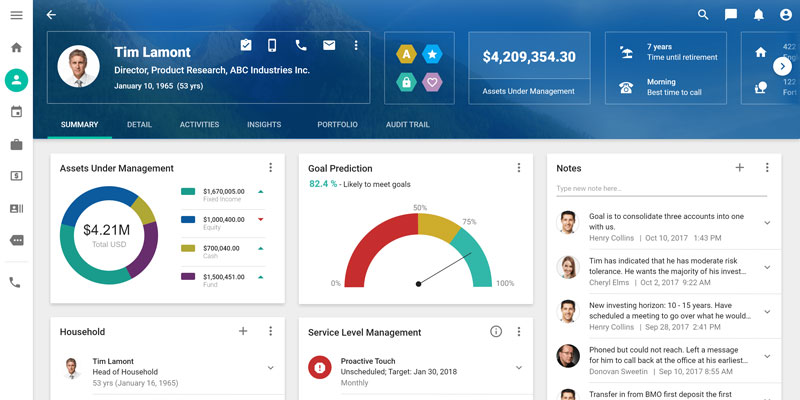If you're a small business owner, you know that having a line of credit is essential to keeping your business running. But what are the current rates for a business line of credit? And what factors will lenders consider when setting those rates? This blog post will answer those questions and give you a few tips on how to get the best rate for your business.
What Is A Business Line Of Credit?

A business line of credit is a borrowing arrangement between a financial institution and a business. The business is approved for a maximum loan and can draw funds up to the required limit.
Interest is only charged on the loan portion used, and payments are typically required only on the outstanding amount. Business lines of credit can be a good financing option for small businesses because they provide flexibility and access to capital without the need to secure collateral.
There are two forms of business lines of credit: secured and unsecured. The former is a loan that uses collateral to back the loan, such as inventory or equipment. An unsecured line of credit is not backed by collateral but typically requires the business to have good credit to qualify.
Business lines of credit can be used for various purposes, such as funding inventory, paying suppliers, or financing short-term working capital needs. They can also be used to cover expenses in unexpected cash flow.
Lines of credit are typically renewable annually, and businesses may be able to increase their borrowing limits if they have a strong track record of repayment.
Pros Of Business Line Of Credit
A business line of credit is a great way to get the financial flexibility your business needs to grow. Here are some of the key benefits of a business line of credit:
- Access to Working Capital: A business line of credit provides you with access to working capital, which can be used for a variety of purposes, including inventory, expansion, and marketing.
- Flexibility: With a business line of credit, you only pay interest on the portion of the credit line that you use. This makes it a very flexible financing solution.
- Revolving Nature: A business line of credit is a revolving form of financing, which means that once you repay the borrowed funds, they become available again. This gives you ongoing access to capital as needed.
- Equity preservation: Unlike other forms of financing, a business line of credit doesn't require collateral, so you don't have to put your assets at risk.
Cons Of Business Line Of Credit
While business lines of credit can offer flexible financing solutions, they also come with disadvantages. One downside is that business lines of credit typically have higher interest rates than other loans. The lender perceives a higher risk associated with lending money to businesses. Another disadvantage of business lines of credit is that they can be difficult to qualify for.
To be approved, businesses usually need strong financial statements and good credit history. Finally, business lines of credit typically have shorter repayment terms than other types of loans, which can pressure cash flow if not managed carefully. While business lines of credit offer some flexibility, it’s important to know the potential downsides before applying for one.
What Determines Your Rates On Business Line Of Credit?

The Amount Of Money
The amount of money you need will play a large role in determining your interest rate. If you only need a small amount of money, you may be able to qualify for a lower interest rate. However, you may have to pay a higher interest rate if you need a large amount of money.
The Length Of Time
The time you need the money will also play a role in determining your interest rate. If you only need the money for a short period, you may be able to qualify for a lower interest rate. Contrary, if you need the money for a longer period, you may have to pay a higher interest rate.
Your Credit History
Your credit history will also play a role in determining your interest rate. If you have a good credit history, you may be able to qualify for a lower interest rate. On the other hand, if you have a bad credit history, you may have to pay a higher interest rate.
The Type Of Collateral You Offer
The type of collateral you offer will also play a role in determining your interest rate. If you offer valuable collateral, such as property or equipment, you may be able to qualify for a lower interest rate. However, if you offer collateral that is not as valuable, such as inventory or receivables, you may have to pay a higher interest rate.
What Are The Current Rates For A Business Line Of Credit?
Rates can vary depending on the business type and the borrower's creditworthiness. For example, businesses with strong credit scores may qualify for rates as low as 4.5%, while those with weaker credit may be charged interest rates of 9% or higher. Business lines of credit typically revolve, meaning borrowers can draw down on the credit line as needed and only pay interest on the borrowed amount.
This flexibility can benefit businesses with variable or seasonal cash flow needs. And because business lines of credit are usually unsecured, they can be easier to obtain than other types of loans. Bank of America is considered the standard bank which provides a business line of credit at rates as low as 4.5%. With collateral, the rate can be more low to 3.75%.
Conclusion
We’ve examined the pros and cons of getting a business line of credit and current rates. It’s up to you whether or not this is the right move for your company. Keep in mind that interest rates can change at any time, so be sure to do your research and shop around for the best deal.



